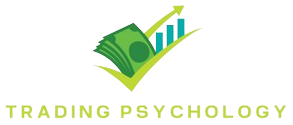Forex, or foreign exchange, is the global marketplace where currencies are traded. It operates 24 hours a day, five days a week, and boasts a daily trading volume exceeding $6 trillion. Aspiring traders enter this arena seeking profit opportunities facilitated by fluctuations in currency values.
The forex market is decentralized, meaning there is no central exchange. Instead, trading occurs electronically over-the-counter (OTC), allowing participants to trade currencies from anywhere in the world. This accessibility and liquidity make forex trading appealing to a wide range of investors, from individual traders to financial institutions.
Understanding the Role of a Forex Broker
A forex broker serves as an intermediary between traders and the forex market. They provide access to trading platforms, execute orders, and offer various services to facilitate trading activities. Essentially, a broker acts as a bridge, connecting traders to the vast liquidity of the forex market.
Brokers may operate as market makers, taking the opposite side of clients’ trades, or as intermediaries, routing orders to liquidity providers such as banks and financial institutions. Understanding the broker’s business model is crucial, as it can impact factors like order execution speed, pricing, and potential conflicts of interest.
Key Factors to Consider When Choosing a Forex Broker
Regulation and Licensing
The first consideration when selecting a forex broker is regulatory compliance. Ensure the broker is licensed and regulated by reputable authorities, such as the Financial Conduct Authority (FCA) in the UK or the Commodity Futures Trading Commission (CFTC) in the US. Regulation helps protect traders’ funds and ensures fair trading practices.
Regulated brokers are required to adhere to strict standards regarding capital adequacy, client fund segregation, and transparent pricing. By choosing a regulated broker, traders can have peace of mind knowing that their funds are secure and that the broker operates in accordance with industry best practices.
Trading Platforms and Tools Evaluation
1. Intuitive Interfaces:
- A user-friendly interface is essential for navigating the trading platform efficiently. Look for platforms with intuitive layouts and navigation menus that allow you to access key features easily.
2. Advanced Charting Capabilities:
- Robust charting tools are indispensable for conducting technical analysis and identifying trading opportunities. Seek platforms that offer a wide range of technical indicators, drawing tools, and chart types to suit your analysis style.
3. Compatibility:
- Ensure that the trading platform is compatible with your devices, including desktop computers, laptops, smartphones, and tablets. Cross-device compatibility allows you to monitor markets and execute trades from anywhere, anytime.
4. Customizable Layouts:
- Customizability is key for tailoring the trading platform to your preferences and trading style. Look for platforms that allow you to customize layouts, color schemes, and display settings to create a personalized trading environment.
5. Technical Indicators:
- Evaluate the availability of technical indicators and overlays to enhance your analysis capabilities. A diverse selection of indicators, including trend-following, oscillators, and volume-based indicators, can help you make informed trading decisions.
6. One-Click Trading Functionality:
- One-click trading functionality enables swift execution of trades with minimal delay. This feature is particularly useful for scalpers and day traders who require rapid order execution to capitalize on short-term price movements.
7. Automated Trading Strategies:
- Consider whether the platform supports automated trading strategies, such as expert advisors (EAs) or algorithmic trading. Automated trading can help streamline your trading process and execute predefined strategies without manual intervention.
8. Real-Time News and Market Analysis:
- Access to real-time news feeds, economic calendars, and market analysis tools is invaluable for staying informed about market developments and potential trading opportunities. Look for platforms that offer integrated news and analysis features.
| Broker Name | Regulation | Trading Platforms | Transaction Costs | Customer Support |
| Broker ABC | FCA, CySEC | MT4, MT5 | Low spreads | 24/7 live chat |
| Broker XYZ | ASIC, FSCA | cTrader, MetaTrader | Competitive | Email, phone |
| Broker DEF | FCA, BaFin | WebTrader, NinjaTrader | Variable spreads | Live chat, FAQ |
The table above provides a comparison of three popular forex brokers based on key factors such as regulation, trading platforms, transaction costs, and customer support. Traders can use this information as a starting point for evaluating and selecting the broker that best meets their trading needs and preferences.
Transaction Costs and Spreads
Compare the transaction costs and spreads offered by different brokers. Low spreads can significantly impact profitability, especially for frequent traders. Be wary of brokers with hidden fees or excessively wide spreads, as they can erode your profits over time.
Transaction costs in forex trading typically consist of spreads, commissions, and overnight financing charges. Spreads are the difference between the buying (ask) and selling (bid) prices of currency pairs and represent the broker’s profit margin. While some brokers offer fixed spreads, others provide variable spreads that fluctuate with market conditions. Understanding the cost structure is essential for optimizing your trading performance and minimizing expenses.
Customer Service and Support
Accessible and responsive customer support is essential, especially in the fast-paced forex market. Choose a broker known for excellent customer service, offering multiple channels of communication and timely assistance.
In the dynamic world of forex trading, technical issues, account inquiries, and trading-related queries can arise at any time. Therefore, it’s essential to select a broker that provides 24/7 customer support via live chat, email, and phone. Prompt and knowledgeable support can help resolve issues quickly and ensure a smooth trading experience.
Researching and Comparing Forex Brokers
Before committing to a broker, conduct thorough research and compare your options. Utilize online resources, read reviews, and seek recommendations from experienced traders. Consider factors such as reputation, reliability, and the range of services offered.
A comprehensive broker comparison involves evaluating multiple aspects, including trading conditions, regulatory status, platform features, and client feedback. Look beyond promotional material and delve into independent reviews and forum discussions to gain insights into the broker’s strengths and weaknesses. By conducting due diligence, you can identify brokers that align with your trading preferences and objectives.
User Experience and Interface
A user-friendly interface enhances your trading efficiency and reduces the learning curve associated with new platforms. Opt for brokers that offer intuitive interfaces and customizable features to suit your preferences.
The user experience encompasses various elements, such as platform navigation, order execution speed, and account management tools. Evaluate the broker’s platform from the perspective of ease of use, responsiveness, and accessibility across different devices. Consider whether the platform offers advanced features like one-click trading, order types, and position management tools. A seamless user experience empowers traders to focus on market analysis and decision-making without being hindered by technical limitations.
Educational Resources and Analysis Tools Evaluation
1. Comprehensive Educational Resources:
- Look for brokers that offer a wide range of educational materials, including articles, tutorials, videos, and webinars. These resources should cover various topics, from basic forex concepts to advanced trading strategies, catering to traders of all skill levels.
2. Tailored Content:
- Assess whether the educational content is tailored to different skill levels and trading styles. Beginners may benefit from introductory courses and tutorials, while experienced traders may prefer in-depth analysis and advanced trading techniques.
3. Market Analysis Tools:
- Evaluate the availability of market analysis tools, such as economic calendars, technical analysis indicators, and research reports. These tools provide valuable insights into market trends, volatility, and potential trading opportunities.
4. Economic Calendars:
- Economic calendars highlight key economic events and announcements that can impact currency markets. Look for brokers that offer comprehensive economic calendars with real-time updates and event analysis to help you stay informed about upcoming market-moving events.
5. Technical Analysis Indicators:
- Technical analysis indicators help traders analyze price charts and identify potential entry and exit points. Seek brokers that offer a diverse range of technical indicators, including trend-following indicators, oscillators, and volume-based indicators, to support your trading strategies.
6. Research Reports:
- Research reports provide in-depth analysis of currency pairs, market trends, and geopolitical events affecting the forex market. Look for brokers that offer regular research reports from experienced analysts, offering insights and recommendations to guide your trading decisions.
| Broker Name | Educational Resources | Tailored Content | Market Analysis Tools | Economic Calendars | Technical Analysis Indicators | Research Reports |
| Broker ABC | Articles, Webinars, Videos | Yes | Economic Calendar | Yes | Comprehensive | Yes |
| Broker XYZ | Tutorials, Webinars | Yes | Technical Indicators | Yes | Extensive | Yes |
| Broker DEF | Courses, Articles | Yes | Research Reports | Yes | Limited | Yes |
The table above provides a comparison of three forex brokers based on their educational resources and analysis tools. Each broker offers a variety of resources and tools designed to help traders enhance their knowledge and analysis capabilities.
Traders should carefully evaluate the educational offerings and analysis tools provided by each broker to determine which aligns best with their learning style and trading preferences. By choosing a broker that prioritizes education and provides robust analysis tools, traders can equip themselves with the knowledge and insights needed to succeed in the dynamic forex market.
Risk Management Features
Effective risk management is crucial for long-term success in forex trading. Look for brokers that offer risk management features such as stop-loss orders, guaranteed stop-losses, and negative balance protection to mitigate potential losses.
Risk management tools empower traders to define and limit their exposure to market volatility and adverse price movements. Implementing risk management strategies involves setting appropriate stop-loss levels, diversifying your portfolio, and avoiding overleveraging positions. Evaluate the broker’s risk management features and policies to ensure they align with your risk tolerance and trading objectives. By prioritizing capital preservation and risk control, traders can safeguard their investments and sustain profitability over time.
Demo Accounts and Practice Options
Many brokers offer demo accounts or practice options that allow you to trade with virtual funds in a simulated environment. Take advantage of these features to familiarize yourself with the platform and test your strategies without risking real money.
Demo accounts serve as invaluable learning tools for traders of all experience levels, providing a risk-free environment to explore different trading techniques and assess platform functionality. Use demo accounts to practice executing trades, analyzing market trends, and refining your risk management approach. Treat demo trading seriously and strive to replicate real-world trading conditions as closely as possible. By honing your skills and building confidence through practice, you can transition to live trading with greater proficiency and preparedness.
Broker Reputation and Reviews
Consider the reputation and reviews of prospective brokers within the trading community. Look for feedback regarding reliability, execution speed, and withdrawal processes to gauge the overall satisfaction of existing clients.
Client testimonials, online reviews, and independent ratings can provide valuable insights into the broker’s performance and service quality. Pay attention to factors such as order execution, slippage, and trade execution speed, as these aspects directly impact your trading experience. Additionally, assess the broker’s track record in handling client funds, resolving disputes, and maintaining transparent communication. By gathering feedback from multiple sources, you can form a balanced perspective and make an informed decision based on the collective experiences of fellow traders.
Accessibility and Availability
Choose a broker that offers reliable access to the forex market and provides round-the-clock support. Market volatility can present trading opportunities at any time, so seamless accessibility is crucial for active traders.
The forex market operates across different time zones, allowing traders to participate in trading activities around the clock. Therefore, select a broker that offers uninterrupted access to trading platforms and customer support services, including weekends and holidays. Evaluate the broker’s server uptime, platform stability, and network infrastructure to ensure reliable connectivity and minimal downtime. A broker with robust technical capabilities and redundant systems can provide a seamless trading experience, even during periods of high market activity and system maintenance.
Account Types and Minimum Deposits
Evaluate the account types and minimum deposit requirements offered by different brokers. Consider your trading capital and preferred trading style when selecting the most suitable account type.
Brokers typically offer a range of account types tailored to different trader profiles, such as standard accounts, mini accounts, and VIP accounts. Each account type may have varying minimum deposit requirements, leverage levels, and trading conditions. Assess your financial situation, risk tolerance, and investment objectives to determine the most appropriate account type for your needs. Additionally, consider factors such as account currency, margin requirements, and available trading instruments when comparing account options. By selecting the right account type, you can optimize your trading experience and effectively manage your investment portfolio.
Bonuses and Promotions
Some brokers offer bonuses and promotional offers to attract new clients. While enticing, be sure to read the terms and conditions carefully and consider the overall value proposition beyond the initial bonus.
Bonuses and promotions come in various forms, including welcome bonuses, deposit bonuses, and cashback incentives. While these offers can provide additional trading capital and enhance your initial deposit, they often come with terms and conditions attached, such as trading volume requirements and withdrawal restrictions. Evaluate the broker’s bonus policy, including eligibility criteria and redemption process, to ensure transparency and fairness. Consider whether the bonus aligns with your trading strategy and risk management principles before accepting any promotional offers. Ultimately, prioritize the overall quality of the broker’s services and trading conditions over short-term incentives.
Selecting the right forex broker is a critical step in your trading journey. By prioritizing factors such as regulation, trading platforms, transaction costs, and customer support, you can identify a broker that meets your needs and empowers your trading endeavors.
Each trader has unique preferences, objectives, and risk tolerances, so there is no one-size-fits-all solution when it comes to choosing a forex broker. Instead, focus on finding a broker that aligns with your trading style, provides reliable access to the market, and offers quality support and services. Remember that your choice of broker can significantly impact your trading experience and long-term success, so invest time and effort in conducting thorough research and due diligence.
FAQs
- How do I know if a forex broker is regulated?
- Look for information about regulatory bodies on the broker’s website and verify their credentials with the respective authorities.
- Can I change my forex broker after opening an account?
- Yes, you can switch brokers at any time by closing your existing account and opening a new one with a different broker.
- Are demo accounts offered by forex brokers realistic?
- Demo accounts aim to simulate real trading conditions but may not fully replicate the live market environment. However, they are valuable for practice and learning purposes.
- What is the significance of spreads in forex trading?
- Spreads represent the difference between the buying and selling prices of currency pairs. Lower spreads translate to lower trading costs for traders.
- How long does it take to withdraw funds from a forex broker?
- Withdrawal processing times vary among brokers and depend on factors such as payment methods and verification procedures.




